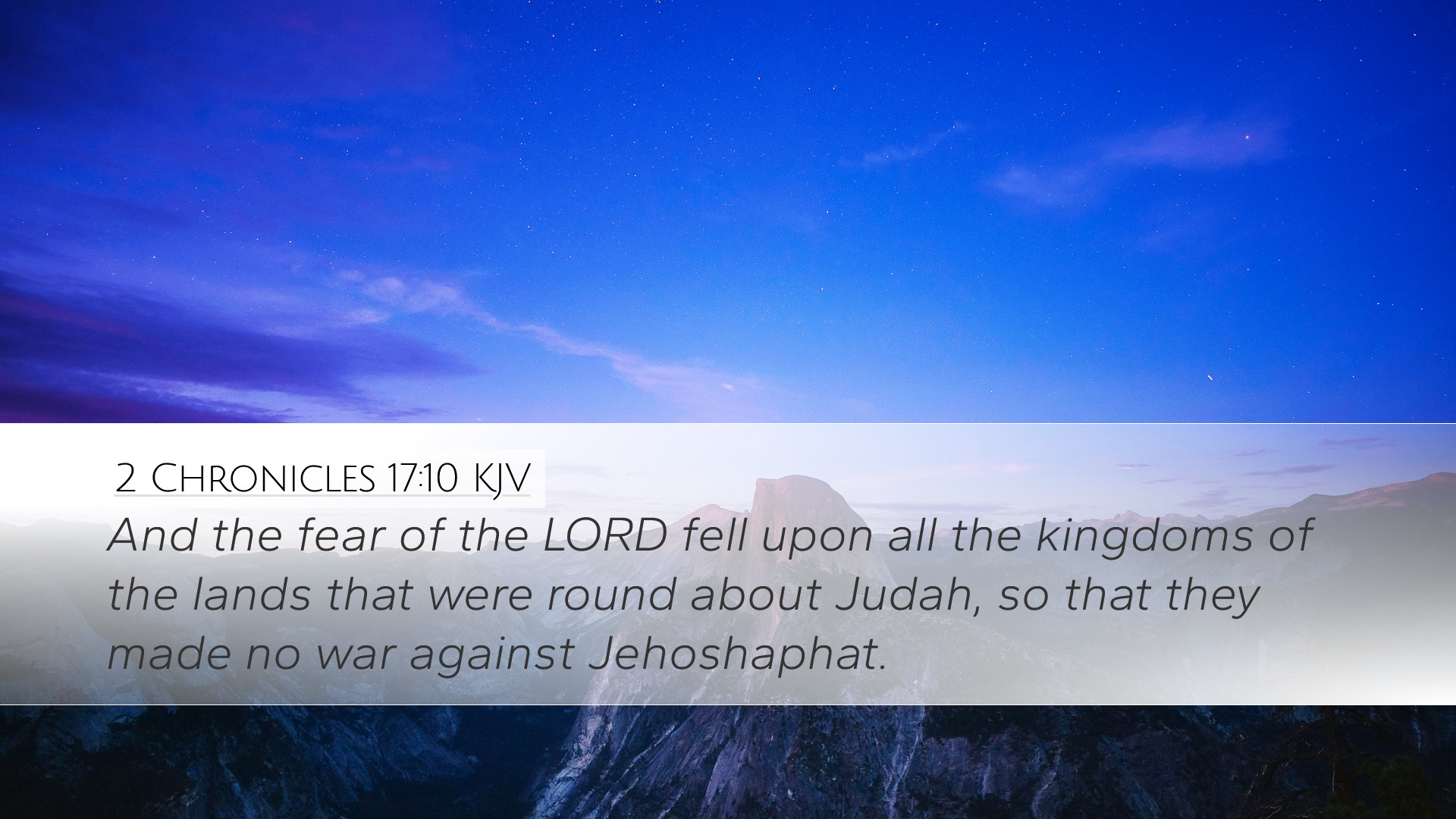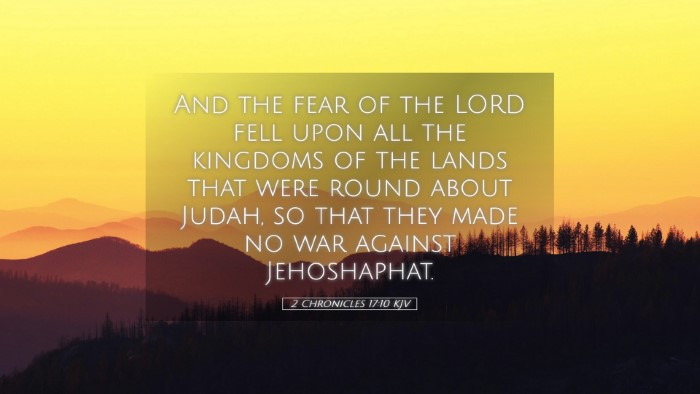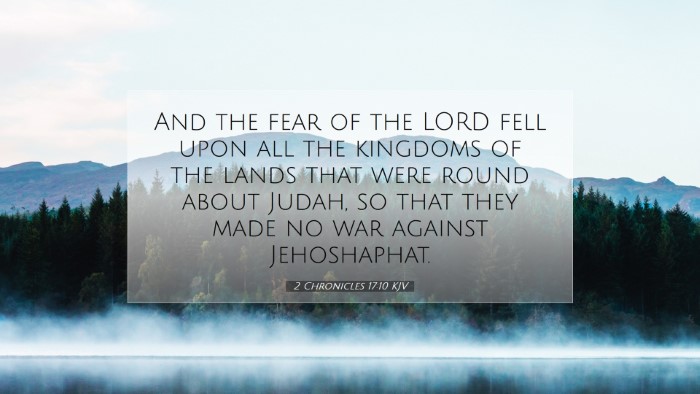Commentary on 2 Chronicles 17:10
Verse Context:
The verse states, "And the fear of the Lord fell upon all the kingdoms of the lands that were round about Judah, so that they made no war against Jehoshaphat." This passage forms a critical junction in the narrative of Jehoshaphat's reign as king of Judah, capturing a moment of divine favor and protection.
Introduction to Jehoshaphat's Reign
Jehoshaphat, the son of Asa, became king of Judah at a time when the kingdom faced both external threats and internal challenges. His commitment to God and efforts to reform practices within Judah significantly shaped the nation's trajectory.
Insights from Public Domain Commentaries
1. Matthew Henry's Commentary
Matthew Henry emphasizes the importance of divine favor in Jehoshaphat's reign, noting that the fear of the Lord not only influenced Judah but also affected surrounding nations. The presence of the Lord instilled a sense of fear and reverence that led the neighboring kingdoms to refrain from warfare against Judah.
-
Theological Implications: Henry asserts that the fear of the Lord should compel nations and individuals towards humility and respect for God's authority. This reverence can serve as a deterrent against conflict and strife.
-
Spiritual Application: He draws practical implications for believers today, highlighting that when one's life is aligned with God's purposes, divine favor may manifest in peace and protection.
2. Albert Barnes' Notes on the Bible
In his notes, Albert Barnes expounds on the phrase "the fear of the Lord," elaborating that it signifies awe, respect, and dread of God's power. This divine influence extended to the surrounding kingdoms, illustrating God's sovereignty over not just Judah, but also over the geopolitical landscape of the time.
-
Divine Sovereignty: Barnes points out that the fear of God falling upon nations demonstrates His control and governance over human affairs, subtly reminding the readers of God's omnipotence.
-
Call to Faithfulness: He encourages leaders and congregants alike to recognize that adherence to God’s commandments leads to peace. The absence of conflict during Jehoshaphat's time is a testament to the covenantal relationship between God and His people.
3. Adam Clarke's Commentary
Adam Clarke provides an insightful discourse about the fear of the Lord, suggesting that it included both an apprehension of pending judgment and a realization of divine love. He notes that the nations' abstention from warfare implied recognition of God’s active presence with Judah.
-
Recognition of God’s Presence: Clarke highlights that the kingdoms around Judah understood that conflict with Israel would lead to certain downfall, serving as a clear illustration of God's protective power over His faithful followers.
-
Historical Reflection: Clarke also encourages scholars and theologians to reflect on how the fear of the Lord can influence nations and leaders in modern contexts, urging them to consider how divine fear can lead to righteous governance and peace.
Scholarly Reflections
The implications of 2 Chronicles 17:10 extend beyond the immediate historical context. They resonate with themes of kingship, the dynamics of power, and the influence of faith on national identity and international relations.
-
Implications for Leadership: For pastors and church leaders, Jehoshaphat’s reliance on God serves as a model. His commitment to spiritual reform and pursuit of peace should attract leaders to foster environments of faithfulness and divine reliance.
-
Peace through Faith: The principle that reverence for God leads to peace remains timeless. Understanding God's desire for our submission can nurture a culture where faith leads to societal harmony rather than conflict.
Conclusion
2 Chronicles 17:10 is not merely a historical account; it is a profound reminder of the necessity for nations and individuals to align with divine principles. As Jehoshaphat experienced peace through his devotion to God, so too can modern believers and leaders create a legacy grounded in reverence for the Lord. In an era marked by division and strife, revisiting this text encourages a commitment to seek God first, fostering environments where His peace and favor can reign.


